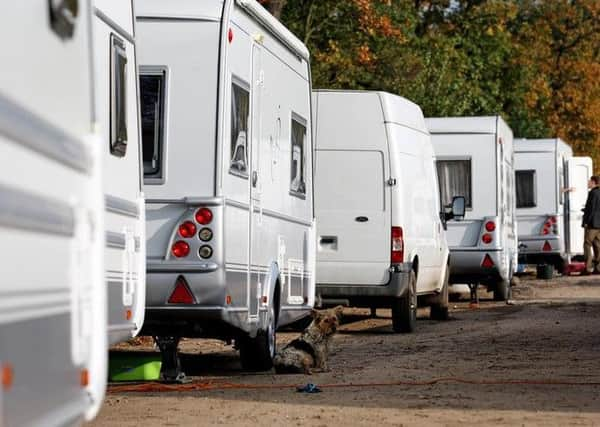Travellers are moving out of Northampton, figures show


Newly-released data from the Ministry of Housing, Communities and Local Government shows that, in July, there were 52 Gypsy, Roma and Traveller caravans in Northampton, 11 fewer than in 2016. In July there were 48 socially rented caravans and four unauthorised sites in Northampton.
The total number of Traveller caravans in England has increased steadily over recent years. There were more than 22,600 in July, an increase of more than 5,000 over a decade.
Advertisement
Hide AdAdvertisement
Hide AdA minority of Traveller caravans, slightly more than 3,000, were on unauthorised sites.
Jim Davies, from the Traveller Movement, said the figures showed that the stereotypical view of Travellers painted by the media was not reflected in reality.
He said: “Certainly, the stereotypical view of Gypsies and Travellers on village greens and children’s football pitches presented by the media is largely inaccurate.
“Not only do close to 80% of Gypsies and Travellers live in bricks and mortar accommodation, but of those unauthorised caravans counted at the last caravan count, more than two thirds were on Gypsy or Traveller-owned land.”
Advertisement
Hide AdAdvertisement
Hide AdMr Davies added that it was important that “policy makers and researchers consider the whole Gypsy and Traveller population, instead of the minority”.
Local authorities in Leeds have recently trialled a system of ‘negotiated stopping’, which has been hailed as a success by Traveller groups.
It involves the council negotiating a code of conduct with the Travellers and Gypsies living on roadside camps, and providing water, waste disposal and portable toilets until the Travellers move on at an agreed date and time.
It is estimated to have saved the council thousands of pounds in legal fees.
Advertisement
Hide AdAdvertisement
Hide AdBut Cllr Simon Blackburn, of the Local Government Association, said that local authorities have a duty to uphold the law when illegal encampments are set up.
He said: “Councils are committed to ensuring that their local communities are safe, inclusive and welcoming. They also know that the vast majority of travellers are law-abiding citizens and often contribute much to the communities they stay in.
“However, when encampments are clearly breaching the law and causing concern and inconvenience to communities, local authorities have a duty to take action to ensure the law is upheld, which they do working alongside the police and the court system.
“With local authorities facing a shortfall of £7.8 billion by 2025, councils can ill afford to have to recover the significant costs of removing illegal encampments and the associated clean up costs.
Advertisement
Hide AdAdvertisement
Hide Ad“There are also instances of some encampments continuing for prolonged periods of time which can have a significant impact on local communities, with councils and private landowners often incurring costs from evicting trespassers.”